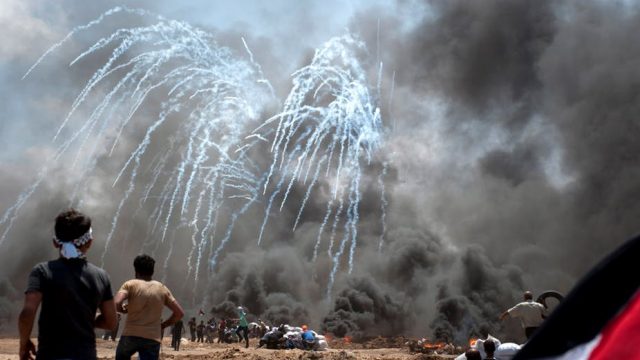Again violence against those of Palestine has made the news. However, in admiring their resilience and not questioning the aggressor, we’re enabling the cycle.
Viewed from Palestine, it’s hard to disagree that we’ve perhaps seen one of the most inflammatory weeks in recent memory. In just a few days, several extremely sensitive events have coincided to devastating effect: the culmination of weekly protests in the Gaza Strip, the relocation of the US embassy from Tel Aviv to Jerusalem, the 70th anniversary of the 1948 Nakba (from the Arabic, “Immense Catastrophe”) and the start of the holy month of Ramadan. Throw in for good measure Israel and Iran’s recent clash over the occupied Golan Heights and it seems that more than ever, the region is something of a tinderbox.
As 800 guests arrived in Jerusalem to bear witness to the US embassy’s relocation – 33 of them representatives from foreign embassies – protesters in the Gaza Strip were being shot and killed. In what’s been dubbed the Great March of Return, Palestinians in Gaza (the vast majority of whom are refugees, or descended from refugees) have amassed at the edge of the territory to demand their right of return, a right that is protected under international law. So far, their demands have been met with a brutal show of force, with more than 50 Palestinians shot dead, including children, paramedics and journalists.
Much is being made of the US’s decision to move its embassy from Tel Aviv to Jerusalem, and perhaps rightly so. Undoubtedly, that change is symbolically resonant. But there is a risk that focusing too narrowly on that issue will obscure a far deeper issue: the continued destruction of the fabric of Palestinian society and ongoing attacks on Palestinian civil liberties.
Read the article by Brendan Ciaran Browne on The Big Smoke.

